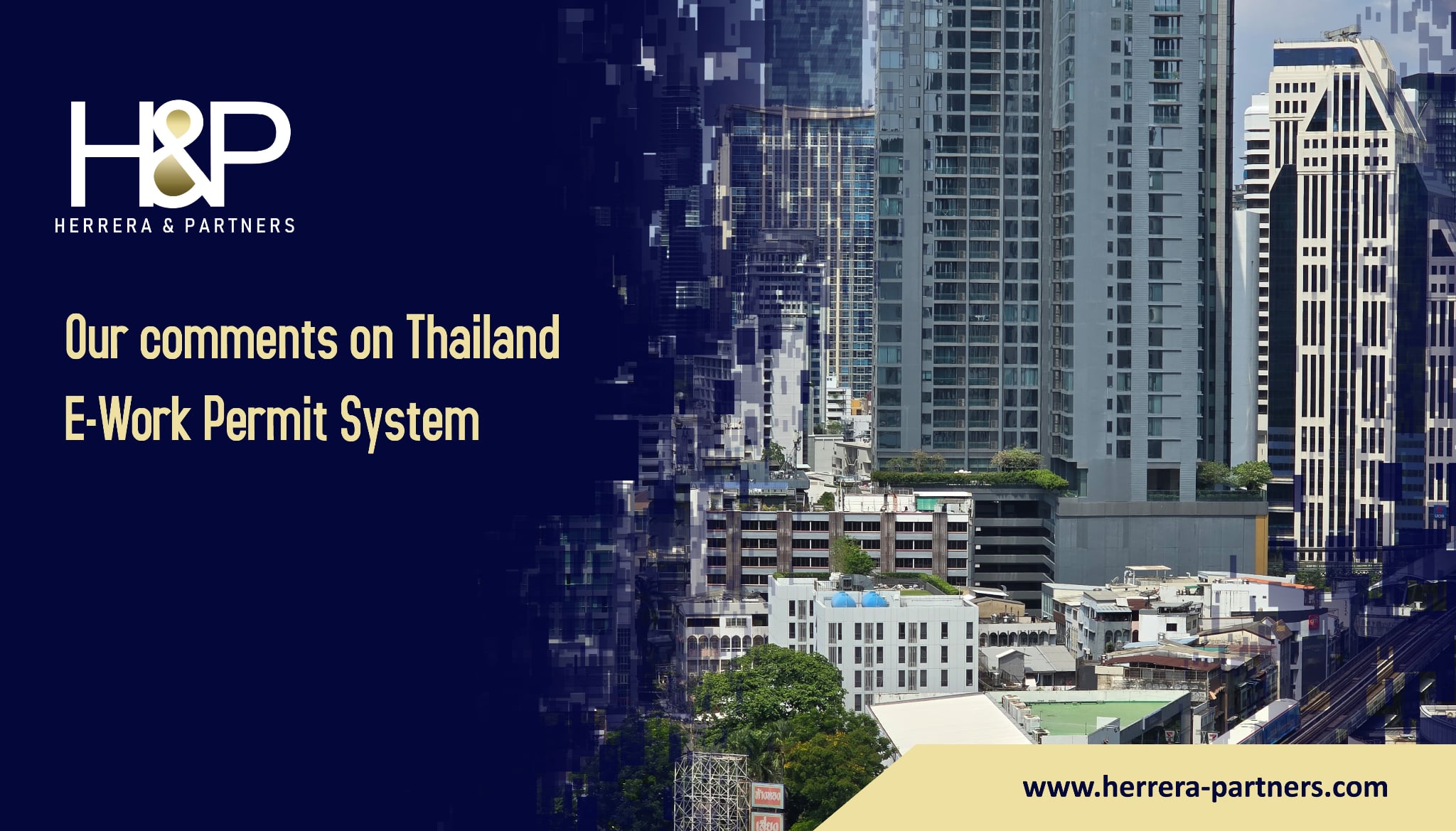
Last 13th of October 2025, the E‑Work Permit platform officially went live via online ushering in a new era for foreign worker permits in Thailand. The system — introduced by the Ministry of Labor in Thailand in collaboration with the Department of Employment (Thailand) — enables 24-hour digital access for foreign workers and their employers to apply for, monitor, and obtain work permits entirely online. The Bangkok immigration lawyers and visa experts in Thailand of H&P have prepared a summary of the practical implementation of the e-work permit in Thailand.
Thailand has long relied on a largely manual work permit application process involving visits to government offices, physical paperwork and booklets (often referred to as the “blue book”). Recognizing the need for greater efficiency, transparency and oversight of the foreign labour force, the Ministry of Labour launched this initiative to digitize and centralize the workflow.
As part of what is called the “Outsourcing Service Project for Producing Work Permits and Providing Application and Employment Notification Services for Foreign Workers”, the new platform is intended to simplify submission, reduce processing time and strengthen data integrity across agencies.
What the e-Work Permit Platform Offers
Some of the key features of the system include:
- 24/7 online access: Employers and foreign workers can register, submit applications, upload supporting documents and pay fees at any time via the portal.
- Real-time status tracking & notifications: Applicants receive updates by e-mail, SMS or via the official Line OA channel as their case moves through the system.
- Reduced physical office visits: Once online approval is granted, the foreign worker only needs to visit one of the designated service centers for biometric verification (face, iris, fingerprint) and card issuance.
- Integrated digital database: The system brings together data from multiple agencies into a unified platform so that information is shared, and processes are standardized across regions.
- Employer onboarding ahead of applications: Employers (and licensed recruitment firms) were given access starting 6th of October 2025, to register and verify their identity. Formal applications by employers/foreign workers start from 13th of October.
- Nation-wide service centers: The Department of Employment established approximately 54 service centers across the country to handle the biometric verification and physical card issuance step.
Mandatory Transition & Scope
Beginning 13th of October 2025, the new e-Work Permit system will be mandatory for all new work permit applications for foreign workers and their employers. Paper-based or manual submission routes are expected to be phased out or used only in exceptional cases.
Notably, the core legal conditions for eligibility (visa status, job contract, medical certificate, etc.) remain unchanged under the new system. What changes is the mode of application, documentation, tracking and issuance.
Benefits and Impacts
- Greater convenience: Applicants and employers benefit from being able to submit and monitor applications at any time and from anywhere.
- Improved speed & consistency: By standardizing processes and digitising documents, the system should reduce delays, eliminate duplicate effort and level out regional disparities in processing times.
- Enhanced transparency and oversight: The unified electronic data framework means authorities can better monitor compliance and reduce fraud or misuse of work permits.
- Employer compliance support: Multinational or scale employers managing multiple foreign workers can use the system as a dashboard to track all cases side by side.
- Worker confidence: Foreign employees may be relieved of multiple visits to government offices, and they get clearer timelines, status updates and fewer surprises.
Practical Considerations
- Employers should register on the platform before 13 October and ensure their authorized filing manager’s identity is verified (via ThaiID app or as required) to avoid delays.
- Clean, legible scans of all supporting documents (employment contract, medical certificate, passport, etc) improve chances of smooth processing.
- After online approval, book the biometric appointment promptly at the nearest service center — the in-person step is short (~12 minutes) but requires timely booking.
- Keep track of notifications by email, SMS or Line OA and respond swiftly if additional information or corrections are requested. Documents that are unclear may cause delays.
- Although the system is now mandatory for new applications, if you hold an existing “blue book” type work permit you should check whether renewal will automatically shift to the digital route and note any transition rules.
- Expect potential technical hiccups during the early rollout—servers may be slower, log-in issues may arise. Planning ahead and uploading early is advisable.
Challenges and Things to Monitor
- While the platform streamlines many steps, the short in-person step remains, so geographic access to service centers (especially in remote provinces) may still pose logistical issues.
- Ensuring data security, verification of identity (especially biometric steps) and guarding against misuse remain ongoing tasks despite the digital modernization.
- Employers and foreign workers not used to digital workflows may need guidance or training to adapt to the new system.
- The system becomes a central hub — if not managed properly, any outage or bottleneck could affect many applications at once.
- Monitoring how the system handles exceptions, renewals or special categories of foreign workers will be important to ensure fairness and reliability.
If you are an employer in Thailand and need to provide a e-work permit to a foreigner in Thailand, please contact our immigration lawyers in Bangkok at [email protected]


